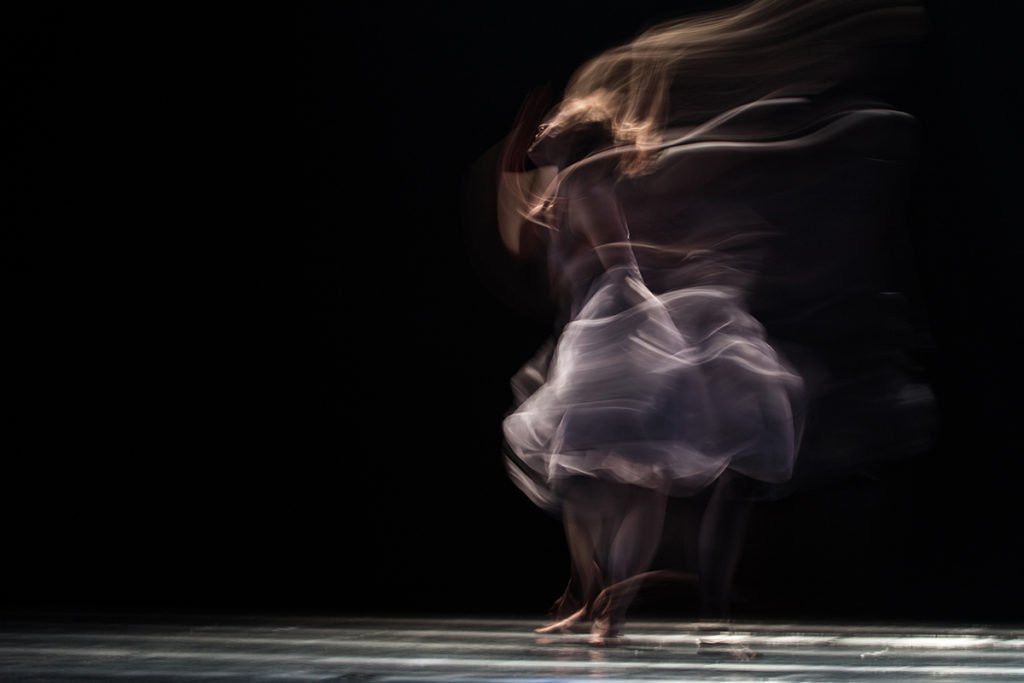Color Space is a term you may have come across in your camera settings or post-processing software of choice.
It refers to the color range that can be displayed by a photograph. Typically, your most common choices in color space are sRGB vs Adobe RGB.
These color spaces are not necessarily interchangeable, so it’s important to know their differences. Each choice is more appropriate in some situations than others.
Let’s take a look into sRGB vs Adobe RGB color spaces, and the description of these terms in photography.
Comparing Srgb Vs Adobe Rgb: What Does Color Space Refer to?
Every image displays a spectrum of color. Think of color space as a digital color palette.
R-G-B stands for red-green-blue, the primary colors from which all colors are made. RGB is a convenient color model for computer graphics and is the standard when talking about color in the digital world.
Each pixel in a digital image is assigned an intensity value between 0 to 255. Millions of different colors can be rendered in a file with varying ratios of these three primary colors.
JPGs are processed files that can store around 16.7 million possible colors. The color space determines the range of colors that can be used.
Note that not all of these millions of colors are actually used. Different factors will also affect how many colors can be displayed, such as the quality of your computer screen.
The takeaway here is that the visible colors in Adobe RGB have more differences between them, and are thus able to record vibrant colors more accurately.
Although the number of colors cannot be increased, you can extend their range with Adobe RGB.
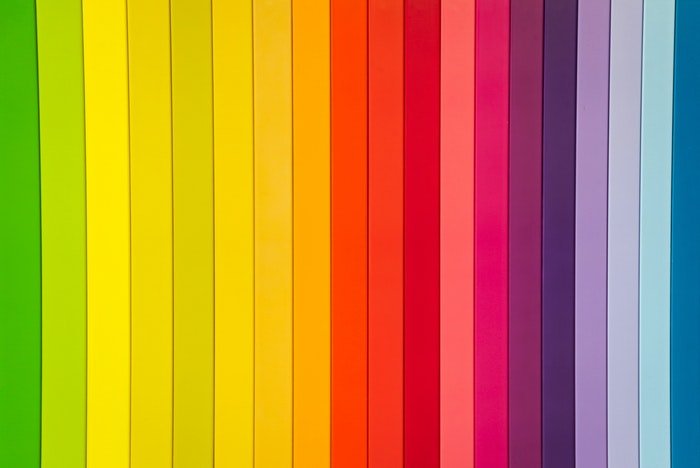
What Is sRGB?
sRGB is an RGB color space that was developed by Microsoft and HP for digital use. It’s the most appropriate color space for computer screens and other digital devices, like tablets and smartphones.
This makes sRGB the default color space. Any device with computer-like capabilities uses sRGB.
sRGB displays consistently across all devices and is simple to work with.
It’s also suitable for prints you may get at your regular neighbourhood color lab.
A computer monitor can display most of the sRGB color range, but can only display about 3/4 of the color range found in Adobe RGB.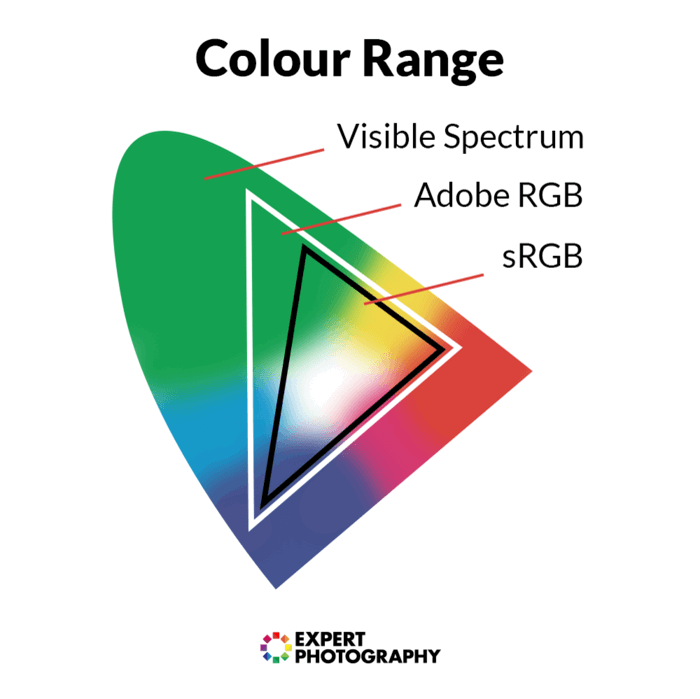
What Is Adobe RGB?
Adobe RGB was developed by Adobe to be compatible with CMYK printers. As mentioned earlier, it encompasses the same number of colors as sRGB, but those colors are more spaced out.
Therefore it gives you a more comprehensive range of saturated color to work with if you want to print your work professionally.
This is their biggest benefit. You can also convert them to sRGB at any time.
You’ll notice that if you upload a photo to the web that has an Adobe RGB color space, the results will look dull and desaturated.
This is because your browser converts the color to sRGB. It does this rather poorly, which means you should convert your files yourself before uploading them.
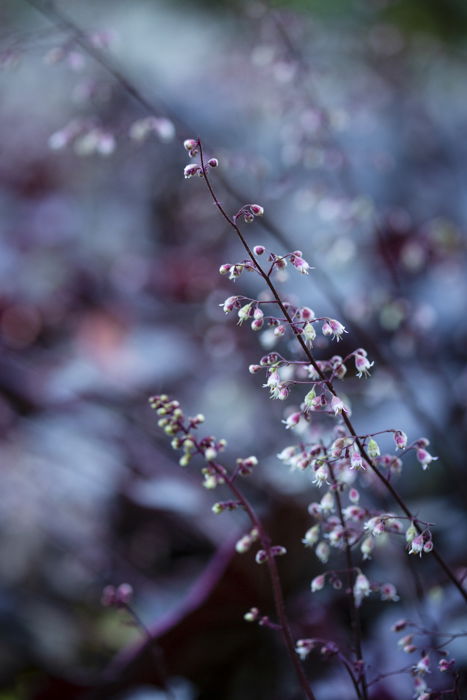
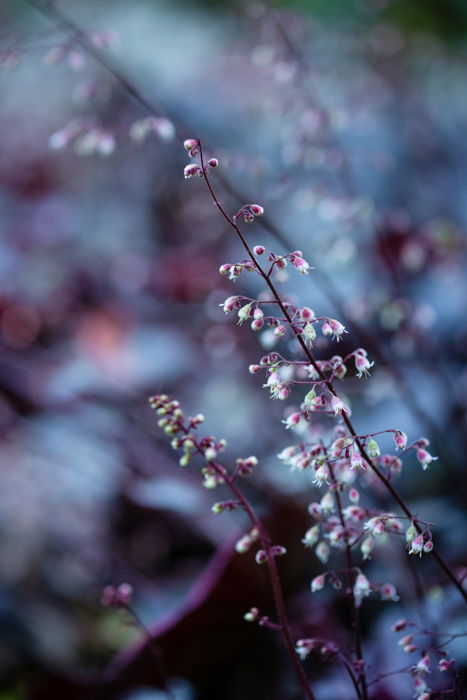
Which Color Space Is Best?
As you might guess, the best col r space is the color space that is best for your needs.
I recommend setting your color space to Adobe RGB in your camera. This will allow you to convert your files to sRGB later if you wish to while giving you a wider gamut of colors to work with while editing.
The great thing about Adobe RGB files is that they can easily be converted into sRGB for screen use.
For example, if you have ever submitted your images to stock agencies, they generally require that you submit them in the Adobe RGB color space. This is because a client purchasing a photo license can choose to print the file or convert it to sRGB for use on the web.
Adobe RGB gives you more options, as the color range is broader.
Your monitor will also influence color space. Some monitors display a wider color gamut than others.
SRGB and Adobe RGB include an equal amount of colors, but the range of sRGB is narrower. Adobe RGB is said to have a 35% wider gamut of color than sRGB.
Also, professional printers have preferences as to which color spaces they require.
If you work mostly in web form but think that in the future you may need the wider color range that Adobe RGB can provide, then save your files in the Adobe RGB color space.
Converting Adobe RGB to sRGB in Lightroom And Photoshop
Whether you use Photoshop or Lightroom, it’s very simple to convert your color space. Just note that you can convert Adobe RGB to sRGB successfully, but not vice versa.
In Lightroom, go to > Preferences.
Choose the > External Editing tab at the top of the menu.
Click on the dropdown menu beside >Color Space and choose >AdobeRGB (1998).

You can also choose to save your image in the desired color space upon export in Lightroom, as in the image below.
Go to >File Space and choose >sRGB or >Adobe RGB from the dropdown menu.
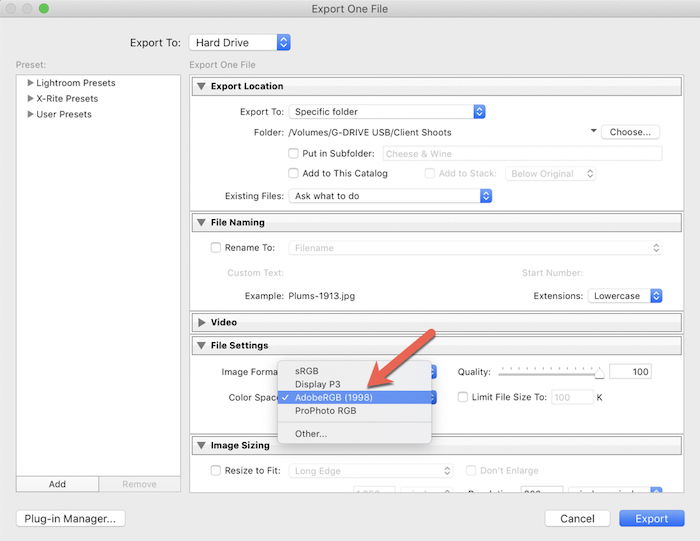
In Photoshop go to > Edit
Choose >Convert to Profile
Under >Profile choose >sRGB from the dropdown menu
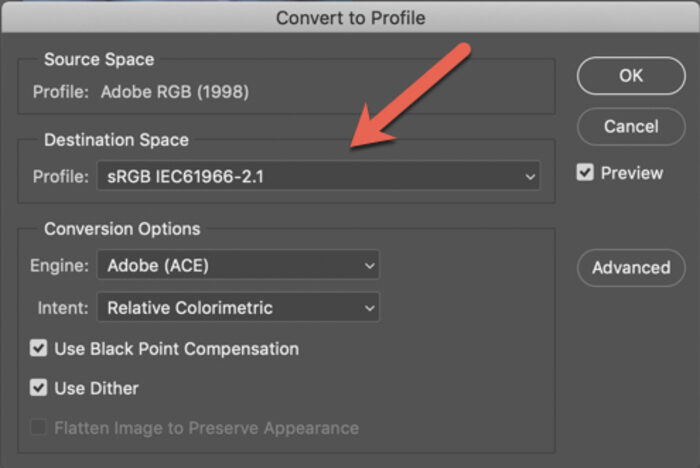
Common Color Space Questions
Is Adobe RGB Better Than sRGB?
Neither color space is considered better than the other overall. They are each more suitable for certain uses.
Which is Better sRGB or ProPhoto RGB?
ProPhoto RGB is a color space that is also suitable for printing and has a wide color gamut. If your images will appear only on the web or social media, then sRGB is the better choice.
What Color Space is Best for Printing?
SRGB is used for screens. If you want to print your work, you’ll need to save your files as sRGB or CMYK. Your printer will advise you on the preferred color space format for your files.
How Many Colors are there in Adobe RGB?
There are 16.7 million colors in Adobe RGB.
Which Color Space Should I Use in Lightroom?
Your choice of color space really depends on the end-use of the image. If you want to share your image on social media, on a blog, or website, then sRGB is the best choice. If the photo is to be printed, then Adobe RGB is the preferred choice.
In Conclusion
As a digital photographer, your primary concern may be artistry rather than the deep technical issues involved in printing, which is often handed over to a professional printer.
However, some of these technical issues like color spaces start in-camera and can have a major impact on how your images appear. Choosing the correct color space for your intentions is crucial and give you the best results.
Now you’ve read up on Adobe RGB vs sRGB color spaces, check out our article on using lab color space!
